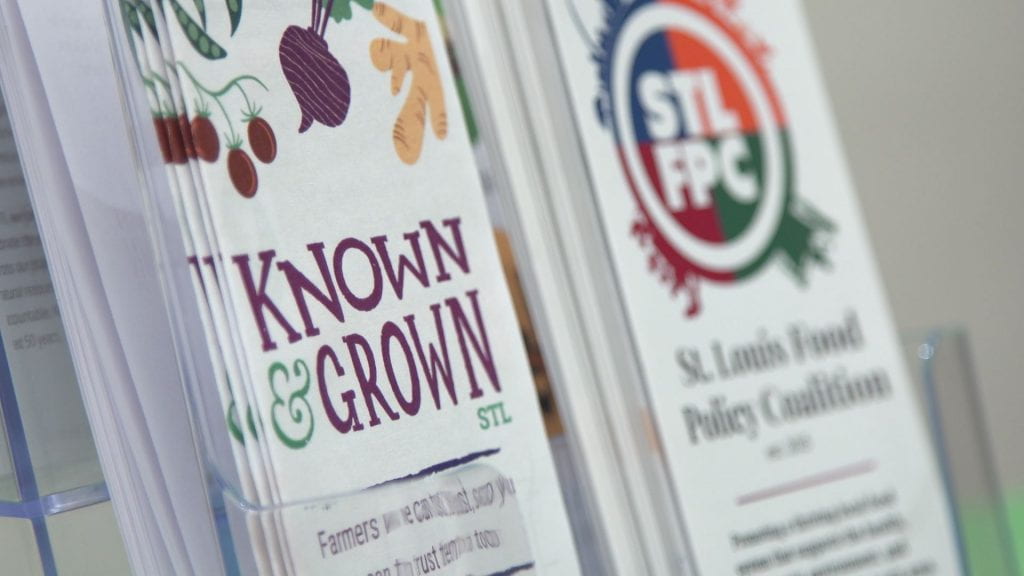Food Week 2019 brought to WashU a number of important conversations about the food we eat. Where does our food come from? What does local and sustainable really mean? What is the true cost of food? On October 22, a number of local farmers including Crystal Stevens (FLOURISH), Tyrean Lewis (Heru Urban Farming), Preston Walker (Eat Here Saint Louis), and Nicki Morgan (HartBeet Farm) came together to discuss their practices, business models, and challenges. What do they have in common? They are all “Known & Grown”.
Known and Grown, a program managed by the Missouri Coalition for the Environment, aims to help farmers within the St. Louis foodshed (150-mile radius around St. Louis) market their products to a larger audience and create a single platform that consumers can go to to reach products that are certifiably organic and sustainable.
Most of the panelists came to farming a little later in life, driven by the desire to connect contemporary food production to consumers; others recognized a need in their community for a better access to fresh produce. All have in common the passion for caring for the land while feeding their community. But in today’s industrialized and globalized food system, growing and selling products at a small scale while remaining environmentally responsible can be challenging. From bug infestations and weeds to picky CSA customers, the farmers gave the audience a glimpse of the work it takes to run a small farm, at a time where our perception of the food we eat has become severed from the land and people that produce it.

From left to right: Nicki Morgan (HartBeet Farm), Preston Walker (Eat Here St. Louis), Tyrean Lewis (Heru Urban Farming), Crystal Stevens (FLOURISH), and Melissa Vatterott (Missouri Coalition for the Environment).
By promoting food producers and retailers who improve our local economy and our environment’s health, and by educating residents about food choices, Known & Grown STL aims to create a thriving, equitable, and sustainable local food system.
When talking about how best to support small, local farmers, the question of institutional
patronage came up. While individuals can access local food through CSAs (like the one at WashU), farmers markets (like the one at WashU), and other resources, larger institutions are facing issues like cost, quantity, and seasonal mismatch when attempting to procure local food. When local produce is most abundant in the summer months is also when WashU’s population is at its lowest. Although, as Preston Walker pointed out, WashU is “more progressive,” with about 17% of the food served by Dining Services being locally sourced (grown, processed or prepared within 200 miles).
The university’s commitment to support local growers was reflected in the reception that followed the panel, which offered food featuring ingredients from Known & Grown farmers. This is the first university event to claim such a feat — hopefully, the first of many.
Further reading about Known & Grown STL:
- Sauce Magazine – Known & Grown STL will help local farmers and educate St. Louis residents
- St. Louis Post-Dispatch – Produce: The good, the bad and the ugly
- Feast Magazine – Known and Grown STL Promotes Local, Environmentally-Responsible Farming in St. Louis
- Riverfront Time – At Known & Grown, Jenn DeRose Advocates for Sustainable Local Farms
- St. Louis Public Radio – Delving Into ‘Known & Grown’ Campaign, Ethical Practices In Local Agriculture Industry
This article was written by Communication Associate Natalie Snyder.
